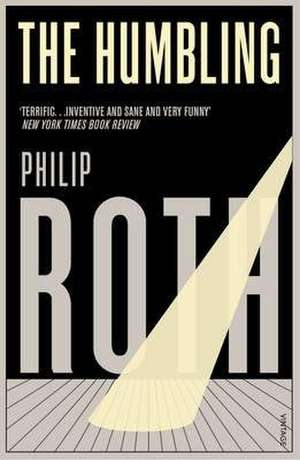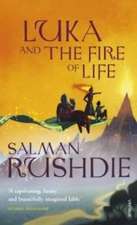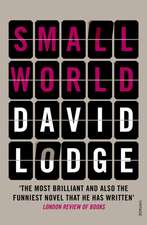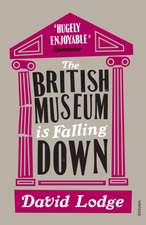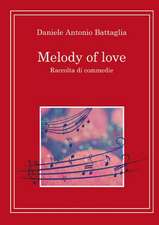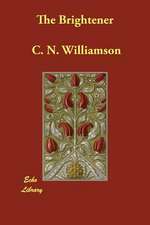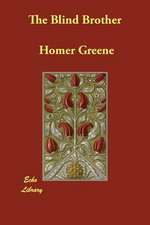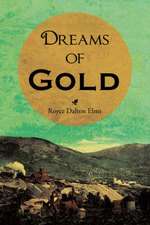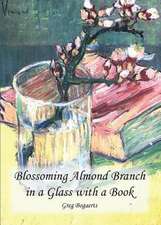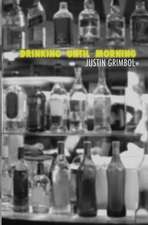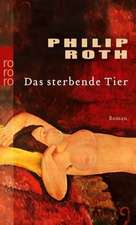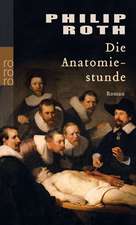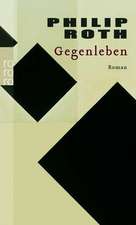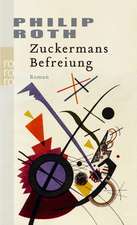The Humbling
Autor Philip Rothen Limba Engleză Paperback – 2 sep 2010
| Toate formatele și edițiile | Preț | Express |
|---|---|---|
| Paperback (2) | 51.35 lei 26-32 zile | +16.01 lei 10-14 zile |
| Vintage Publishing – 2 sep 2010 | 51.35 lei 26-32 zile | +16.01 lei 10-14 zile |
| Vintage Books USA – 30 sep 2010 | 94.24 lei 3-5 săpt. |
Preț: 51.35 lei
Preț vechi: 62.38 lei
-18% Nou
Puncte Express: 77
Preț estimativ în valută:
9.83€ • 10.22$ • 8.11£
9.83€ • 10.22$ • 8.11£
Carte disponibilă
Livrare economică 27 martie-02 aprilie
Livrare express 11-15 martie pentru 26.00 lei
Preluare comenzi: 021 569.72.76
Specificații
ISBN-13: 9780099535652
ISBN-10: 0099535653
Pagini: 160
Dimensiuni: 130 x 198 x 12 mm
Greutate: 0.12 kg
Editura: Vintage Publishing
ISBN-10: 0099535653
Pagini: 160
Dimensiuni: 130 x 198 x 12 mm
Greutate: 0.12 kg
Editura: Vintage Publishing
Notă biografică
Philip Roth was born in Newark, New Jersey on 19 March 1933. The second child of second-generation Americans, Bess and Herman Roth, Roth grew up in the largely Jewish community of Weequahic, a neighbourhood he was to return to time and again in his writing. After graduating from Weequahic High School in 1950, he attended Bucknell University, Pennsylvania and the University of Chicago, where he received a scholarship to complete his M.A. in English Literature.
In 1959, Roth published Goodbye, Columbus ¿ a collection of stories, and a novella ¿ for which he received the National Book Award. Ten years later, the publication of his fourth novel, Portnoy¿s Complaint, brought Roth both critical and commercial success, firmly securing his reputation as one of Americäs finest young writers. Roth was the author of thirty-one books, including those that were to follow the fortunes of Nathan Zuckerman, and a fictional narrator named Philip Roth, through which he explored and gave voice to the complexities of the American experience in the twentieth- and twenty-first centuries.
Roth¿s lasting contribution to literature was widely recognised throughout his lifetime, both in the US and abroad. Among other commendations he was the recipient of the Pulitzer Prize, the International Man Booker Prize, twice the winner of the National Book Critics Circle Award and the National Book Award, and presented with the National Medal of Arts and the National Humanities Medal by Presidents Clinton and Obama, respectively.
Philip Roth died on 22 May 2018 at the age of eighty-five having retired from writing six years previously.
In 1959, Roth published Goodbye, Columbus ¿ a collection of stories, and a novella ¿ for which he received the National Book Award. Ten years later, the publication of his fourth novel, Portnoy¿s Complaint, brought Roth both critical and commercial success, firmly securing his reputation as one of Americäs finest young writers. Roth was the author of thirty-one books, including those that were to follow the fortunes of Nathan Zuckerman, and a fictional narrator named Philip Roth, through which he explored and gave voice to the complexities of the American experience in the twentieth- and twenty-first centuries.
Roth¿s lasting contribution to literature was widely recognised throughout his lifetime, both in the US and abroad. Among other commendations he was the recipient of the Pulitzer Prize, the International Man Booker Prize, twice the winner of the National Book Critics Circle Award and the National Book Award, and presented with the National Medal of Arts and the National Humanities Medal by Presidents Clinton and Obama, respectively.
Philip Roth died on 22 May 2018 at the age of eighty-five having retired from writing six years previously.
Descriere
Simon Axler is one of America's leading classical stage actors, but his talent - his magic - has deserted him. It is only when he begins an affair with Pegeen - formerly a lesbian of 17 years - that Axler's regeneration (and then his final catastrophe) can begin.
Extras
1.
Into Thin Air
He'd lost his magic. The impulse was spent. He'd never failed in the theater, everything he had done had been strong and successful, and then the terrible thing happened: he couldn't act. Going onstage had become agony. Instead of the certainty that he was going to be wonderful, he knew he was going to fail. It happened three times in a row, and by the last time nobody was interested, nobody came. He couldn't get over to the audience. His talent was dead.
Of course, if you've had it, you always have something unlike anyone else's. I'll always be unlike anyone else, Axler told himself, because I am who I am. I carry that with me—that people will always remember. But the aura he'd had, all his mannerisms and eccentricities and personal peculiarities, what had worked for Falstaff and Peer Gynt and Vanya—what had gained Simon Axler his reputation as the last of the best of the classical American stage actors—none of it worked for any role now. All that had worked to make him himself now worked to make him look like a lunatic. He was conscious of every moment he was on the stage in the worst possible way. In the past when he was acting he wasn't thinking about anything. What he did well he did out of instinct. Now he was thinking about everything, and everything spontaneous and vital was killed—he tried to control it with thinking and instead he destroyed it. All right, Axler told himself, he had hit a bad period. Though he was already in his sixties, maybe it would pass while he was still recognizably himself. He wouldn't be the first experienced actor to go through it. A lot of people did. I've done this before, he thought, so I'll find some way. I don't know how I'm going to get it this time, but I'll find it—this will pass.
It didn't pass. He couldn't act. The ways he could once rivet attention on the stage! And now he dreaded every performance, and dreaded it all day long. He spent the entire day thinking thoughts he'd never thought before a performance in his life: I won't make it, I won't be able to do it, I'm playing the wrong roles, I'm overreaching, I'm faking, I have no idea even of how to do the first line. And meanwhile he tried to occupy the hours doing a hundred seemingly necessary things to prepare; I have to look at this speech again, and by the time he got to the theater he was exhausted. And dreading going out there. He would hear the cue coming closer and closer and know that he couldn't do it. He waited for the freedom to begin and the moment to become real, he waited to forget who he was and to become the person doing it, but instead he was standing there, completely empty, doing the kind of acting you do when you don't know what you are doing. He could not give and he could not withhold; he had no fluidity and he had no reserve. Acting became a night-after-night exercise in trying to get away with something.
It had started with people speaking to him. He couldn't have been more than three or four when he was already mesmerized by speaking and being spoken to. He had felt he was in a play from the outset. He could use intensity of listening, concentration, as lesser actors used fireworks. He had that power offstage, too, particularly, when younger, with women who did not realize that they had a story until he revealed to them that they had a story, a voice, and a style belonging to no other. The became actresses with Axler, they became the heroines of their own lives. Few stage actors could speak and be spoke to the way he could, yet he could do neither anymore. The sound that used to go into his ear felt as though it were going out, and every word he uttered seemed acted instead of spoken. The initial source in his acting was in what he heard, his response to what he heard was at the core of it, and if he couldn't listen, couldn't hear, he had nothing to go on.
He was asked to play Prospero and Macbeth at the Kennedy Center—it was hard to think of a more ambitious double bill—and he failed appallingly in both, but especially as Macbeth. He couldn't do low-intensity Shakespeare and he couldn't do high-intensity Shakespeare—and he'd been doing Shakespeare all his life. His Macbeth was ludicrous and everyone who saw it said as much, and so did many who hadn't seen it. "No, the don't even have to have been there," he said, "to insult you." A lot of actors would have turned to drink to help themselves out an old joke had it that there was an actor who would always drink before he went onstage, and when he was warned "You musn't drink," he replied, "What, and go out there alone?" But Axler didn't drink, and so he collapsed instead. His breakdown was colossal.
The worst of it was that he saw through his breakdown the same way he could see through his acting. The suffering was excruciating and yet he doubted that it was genuine, which made it even worse. He did not know how he was going to get from one minute to the next, his mind felt as though it were melting, he was terrified to be alone, he could not sleep more than two or three hours a night, he scarcely ate, he thought every day of killing himself with the gun in the attic—a Remington 870 pump-action shotgun that he kept in the isolate farmhouse for self-defense—and still the whole thing seemed to be an act, a bad act. When you're playing the role of somebody coming apart, it has organization and order; when you're observing yourself coming apart, playing the role of your own demise, that's something else, something awash with terror and fear.
Into Thin Air
He'd lost his magic. The impulse was spent. He'd never failed in the theater, everything he had done had been strong and successful, and then the terrible thing happened: he couldn't act. Going onstage had become agony. Instead of the certainty that he was going to be wonderful, he knew he was going to fail. It happened three times in a row, and by the last time nobody was interested, nobody came. He couldn't get over to the audience. His talent was dead.
Of course, if you've had it, you always have something unlike anyone else's. I'll always be unlike anyone else, Axler told himself, because I am who I am. I carry that with me—that people will always remember. But the aura he'd had, all his mannerisms and eccentricities and personal peculiarities, what had worked for Falstaff and Peer Gynt and Vanya—what had gained Simon Axler his reputation as the last of the best of the classical American stage actors—none of it worked for any role now. All that had worked to make him himself now worked to make him look like a lunatic. He was conscious of every moment he was on the stage in the worst possible way. In the past when he was acting he wasn't thinking about anything. What he did well he did out of instinct. Now he was thinking about everything, and everything spontaneous and vital was killed—he tried to control it with thinking and instead he destroyed it. All right, Axler told himself, he had hit a bad period. Though he was already in his sixties, maybe it would pass while he was still recognizably himself. He wouldn't be the first experienced actor to go through it. A lot of people did. I've done this before, he thought, so I'll find some way. I don't know how I'm going to get it this time, but I'll find it—this will pass.
It didn't pass. He couldn't act. The ways he could once rivet attention on the stage! And now he dreaded every performance, and dreaded it all day long. He spent the entire day thinking thoughts he'd never thought before a performance in his life: I won't make it, I won't be able to do it, I'm playing the wrong roles, I'm overreaching, I'm faking, I have no idea even of how to do the first line. And meanwhile he tried to occupy the hours doing a hundred seemingly necessary things to prepare; I have to look at this speech again, and by the time he got to the theater he was exhausted. And dreading going out there. He would hear the cue coming closer and closer and know that he couldn't do it. He waited for the freedom to begin and the moment to become real, he waited to forget who he was and to become the person doing it, but instead he was standing there, completely empty, doing the kind of acting you do when you don't know what you are doing. He could not give and he could not withhold; he had no fluidity and he had no reserve. Acting became a night-after-night exercise in trying to get away with something.
It had started with people speaking to him. He couldn't have been more than three or four when he was already mesmerized by speaking and being spoken to. He had felt he was in a play from the outset. He could use intensity of listening, concentration, as lesser actors used fireworks. He had that power offstage, too, particularly, when younger, with women who did not realize that they had a story until he revealed to them that they had a story, a voice, and a style belonging to no other. The became actresses with Axler, they became the heroines of their own lives. Few stage actors could speak and be spoke to the way he could, yet he could do neither anymore. The sound that used to go into his ear felt as though it were going out, and every word he uttered seemed acted instead of spoken. The initial source in his acting was in what he heard, his response to what he heard was at the core of it, and if he couldn't listen, couldn't hear, he had nothing to go on.
He was asked to play Prospero and Macbeth at the Kennedy Center—it was hard to think of a more ambitious double bill—and he failed appallingly in both, but especially as Macbeth. He couldn't do low-intensity Shakespeare and he couldn't do high-intensity Shakespeare—and he'd been doing Shakespeare all his life. His Macbeth was ludicrous and everyone who saw it said as much, and so did many who hadn't seen it. "No, the don't even have to have been there," he said, "to insult you." A lot of actors would have turned to drink to help themselves out an old joke had it that there was an actor who would always drink before he went onstage, and when he was warned "You musn't drink," he replied, "What, and go out there alone?" But Axler didn't drink, and so he collapsed instead. His breakdown was colossal.
The worst of it was that he saw through his breakdown the same way he could see through his acting. The suffering was excruciating and yet he doubted that it was genuine, which made it even worse. He did not know how he was going to get from one minute to the next, his mind felt as though it were melting, he was terrified to be alone, he could not sleep more than two or three hours a night, he scarcely ate, he thought every day of killing himself with the gun in the attic—a Remington 870 pump-action shotgun that he kept in the isolate farmhouse for self-defense—and still the whole thing seemed to be an act, a bad act. When you're playing the role of somebody coming apart, it has organization and order; when you're observing yourself coming apart, playing the role of your own demise, that's something else, something awash with terror and fear.
Recenzii
“Elegant and brutal. . . . Direct and urgent, a taut and controlled fever-dream that demands to be experienced at a single sitting. . . . [He] is a master.” —The Los Angeles Times
“Convincing and powerful. . . . At 76, [Roth] is still a literary colossus whose ability to inspire, astonish and enrage his readers is undiminished.” —Elaine Showalter, The Washington Post
“Philip the great, Philip the audacious, the voracious, writes of bottomless hunger—emotional, sexual, existential. When you hear about a new Philip Roth novel, you have to read it. . . . Roth still has his chops.” —O, The Oprah Magazine
“Masterful. . . . Roth's best work in years; sentence for sentence, paragraph for paragraph, he's still the most readable serious writer we've got. . . . It's pleasant to read a book this tight, this efficiently constructed.” —The Huffington Post
“Blooms brightly in the extraordinarily fecund garden of his late work. . . . A swift but piercing, uncluttered but nuanced morality tale.” —“Books We Like,” NPR
“The Humbling unfolds in three acts of pristine economy, dramatic lucidity and unstoppable narrative momentum. . . . The dispassion that has always marked Roth’s narrative voice sometimes achieves the depth and simplicity of the best music or poetry. . . . The laughter keeps getting quieter and more knowing.” —The Plain Dealer
“A vitally important addition to Philip Roth’s already amazing body of work.” —The Philadelphia Inquirer
“Artfully spry. . . . With punchy prose. . . . [The Humbling] is Roth’s best work since Sabbath’s Theater. It’s Goodbye, Columbus for big kids.” —The Dallas Examiner
“The novel . . . finds traction in familiar Rothian interrogations—of the self’s deviousness, the impossible murkiness of motive, and the performative nature of identity.” —The New Yorker
“Roth is a master of pacing. . . . [He is] a great writer, a great anatomist of passion. His admirers will find much to admire in The Humbling.” —The Oregonian
“Succinct and attention-grabbing. . . . Though the novels are shorter these days, they are no less provocative than his early ones.” —Winnipeg Free Press
“A daring experiment in late style.” —Slate
“The Humbling should be read as a kind of Mortality Trilogy with The Dying Animal and Everyman, two other autumnal works from this great writer. Short, bitter and bracing, they lend the courage to see and endure what is.” —The Dallas Morning News
“Roth at his rawest. . . . Slim, bleak and sexy. . . . Roth’s writing flows gracefully.” —USA Today
“Roth writes movingly. . . . The compact intensity of Roth’s late fictions suits well the stark truths he explores in The Humbling. Here, he strips a man’s life to its essential movements, onto the light of the stage and off to the darkness of the wings when the curtains come down.” —The Post and Courier
“At 76 [Roth] is still leaving scorch marks on the page.” —Bloomberg News
“Forceful, haunting and unnervingly effective.” —The Toronto Star
“Compelling. . . . It takes an artist as gravely ludicrous as Roth to create a body of work in which intertextuality comes to be a brute condition of existence itself.” —The Times Literary Supplement [UK]
“A wild, skittering erotic scherzo. . . . Anyone who admires the tormented subjectivity, existential dread, winnowed language and corrosive gallows humour of, say, Thomas Bernhard and Samuel Beckett should feel at home in late Roth. . . . Yes, The Humbling takes his hero down to a naked place where self and skill evaporate: the word ‘nobody’ tolls like a Beckettian bell. But the show for Simon, for Roth, for fiction must go on.” —The Independent [UK]
“Masterly. . . . Powerfully dramatic. . . . We should be grateful that Roth continues to maintain his concentration on the terrible facts. . . . [The Humbling] is the most to-the-point, the most necessary work its author has published since The Dying Animal.” —London Review of Books
“Gripping. . . . The intense realism of some of the scenes is shocking and unforgettable. . . . Worthy of a David Lynch film. . . . [Roth] is the most courageous writer alive, and this is another brave move.” —The Guardian [UK]
“Convincing and powerful. . . . At 76, [Roth] is still a literary colossus whose ability to inspire, astonish and enrage his readers is undiminished.” —Elaine Showalter, The Washington Post
“Philip the great, Philip the audacious, the voracious, writes of bottomless hunger—emotional, sexual, existential. When you hear about a new Philip Roth novel, you have to read it. . . . Roth still has his chops.” —O, The Oprah Magazine
“Masterful. . . . Roth's best work in years; sentence for sentence, paragraph for paragraph, he's still the most readable serious writer we've got. . . . It's pleasant to read a book this tight, this efficiently constructed.” —The Huffington Post
“Blooms brightly in the extraordinarily fecund garden of his late work. . . . A swift but piercing, uncluttered but nuanced morality tale.” —“Books We Like,” NPR
“The Humbling unfolds in three acts of pristine economy, dramatic lucidity and unstoppable narrative momentum. . . . The dispassion that has always marked Roth’s narrative voice sometimes achieves the depth and simplicity of the best music or poetry. . . . The laughter keeps getting quieter and more knowing.” —The Plain Dealer
“A vitally important addition to Philip Roth’s already amazing body of work.” —The Philadelphia Inquirer
“Artfully spry. . . . With punchy prose. . . . [The Humbling] is Roth’s best work since Sabbath’s Theater. It’s Goodbye, Columbus for big kids.” —The Dallas Examiner
“The novel . . . finds traction in familiar Rothian interrogations—of the self’s deviousness, the impossible murkiness of motive, and the performative nature of identity.” —The New Yorker
“Roth is a master of pacing. . . . [He is] a great writer, a great anatomist of passion. His admirers will find much to admire in The Humbling.” —The Oregonian
“Succinct and attention-grabbing. . . . Though the novels are shorter these days, they are no less provocative than his early ones.” —Winnipeg Free Press
“A daring experiment in late style.” —Slate
“The Humbling should be read as a kind of Mortality Trilogy with The Dying Animal and Everyman, two other autumnal works from this great writer. Short, bitter and bracing, they lend the courage to see and endure what is.” —The Dallas Morning News
“Roth at his rawest. . . . Slim, bleak and sexy. . . . Roth’s writing flows gracefully.” —USA Today
“Roth writes movingly. . . . The compact intensity of Roth’s late fictions suits well the stark truths he explores in The Humbling. Here, he strips a man’s life to its essential movements, onto the light of the stage and off to the darkness of the wings when the curtains come down.” —The Post and Courier
“At 76 [Roth] is still leaving scorch marks on the page.” —Bloomberg News
“Forceful, haunting and unnervingly effective.” —The Toronto Star
“Compelling. . . . It takes an artist as gravely ludicrous as Roth to create a body of work in which intertextuality comes to be a brute condition of existence itself.” —The Times Literary Supplement [UK]
“A wild, skittering erotic scherzo. . . . Anyone who admires the tormented subjectivity, existential dread, winnowed language and corrosive gallows humour of, say, Thomas Bernhard and Samuel Beckett should feel at home in late Roth. . . . Yes, The Humbling takes his hero down to a naked place where self and skill evaporate: the word ‘nobody’ tolls like a Beckettian bell. But the show for Simon, for Roth, for fiction must go on.” —The Independent [UK]
“Masterly. . . . Powerfully dramatic. . . . We should be grateful that Roth continues to maintain his concentration on the terrible facts. . . . [The Humbling] is the most to-the-point, the most necessary work its author has published since The Dying Animal.” —London Review of Books
“Gripping. . . . The intense realism of some of the scenes is shocking and unforgettable. . . . Worthy of a David Lynch film. . . . [Roth] is the most courageous writer alive, and this is another brave move.” —The Guardian [UK]
